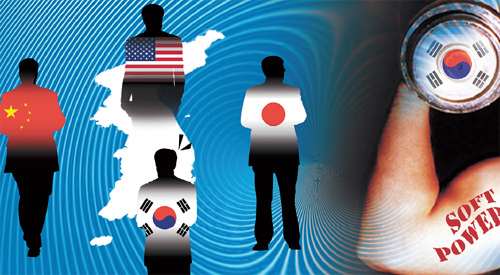The Obama administration should use diplomatic normalization with North Korea as a more flexible and effective bargaining card. It may well consider offering a basic treaty on normalization with the North in return for an acceptable verification protocol involving sampling, forensic activities, and access to suspected nuclear sites as well as the transfer of a sizable amount of nuclear materials. The option of ‘dismantle first, then we will normalize ties with you’ was tried under Bush and failed.
Since both the ROK and the US have learned from past mistakes with regard to North Korea, they are more likely to work together by narrowing policy differences. I believe both Lee and Obama are united in their purpose of denuclearizing North Korea, though differences in the implementation of this policy goal exist.The Obama administration would likely expedite rapprochement with Pyongyang if North Korea is willing to make major concessions in verifiable dismantling of its nuclear programs and weapons. The Lee government, for its part, would not oppose such a move provided that progress is made.
The proposed trilateral US-China-Japan commission ought to be seen as a positive step, since cooperation among the three most powerful regional actors is vital to peace and stability in Northeast Asia. It could mitigate a tense rivalry between China and Japan, as well as a potential conflict between China and the US that will emanate from power transition. In fact, Kurt Campbell, a nominee for the Assistant Secretary of State for Asian and Pacific Affairs, has been a staunch advocate of this approach.
But institutionalization of such a trilateral summit could cause serious security concerns in South Korea because of its potential exclusion. Most Koreans still remember how Korea was arbitrarily divided by the calculus of the major powers after World War II. North Korea and Russia will also oppose the trilateral formula. South Korea would be far better off proposing a six party summit among China, Japan, Russia, the US and both Koreas or a ‘6-1’ summit in case North Korea does not show up.
The ROK-US alliance will face its own challenges, as in order for an alliance to persist, there must be a shared perception of a common enemy and threat. Shared values alone cannot guarantee the longevity of any alliance. But South Korea, as also the United States, cannot regard China and North Korea as potential or actual threats.
A regional multilateral security cooperation scheme similar to the Organization for Security Cooperation in Europe would be much more beneficial in helping South Korea escape from a perpetual security dilemma. But such security architecture is not conceivable without American commitment.
South Korea’s diplomatic role in the region should be a focus of policy. South Korea should play a ‘soft balancing role’ by providing new and innovative ideas, facilitating the diffusion of common, comprehensive, and cooperative security in the region, and steering the process of regional security cooperation: but the US is vital to any of these measures.
Moving closer to China at this stage is viewed by most South Koreans as premature and even dangerous, but such a move by South Korea entails neither ‘bandwagoning’ with China nor adopting a strong ‘balancer’ role.
More generally, South Korea needs to develop a grand strategy that can assure its security and prosperity through engagement, balancing and hedging.
Obsession with short-term gains, tactical and impromptu maneuvering, excessive value orientation, and the politicization of security and foreign policy issues need to be avoided. The Lee government needs to improve relations with North Korea by enhancing mutual trust, recognizing its regime identity, sending coherent policy signals, and promoting exchange and cooperation.
The alliance with the US should be further strengthened, while Korea also ought to pledge to share its associated costs. South Korea should also take maximum advantage of the trilateral summit among China, Japan, and South Korea, while deepening existing trilateral consultative ties with Japan and the US.
More importantly, South Korea should explore new multilateral initiatives by going beyond traditional bilateral maneuvers.
Chung-in Moon is Professor of Political Science at Yonsei University, Seoul, Korea, and was formerly Korea’s Ambassador for International Security Affairs. This article is adapted from an interview given to the Korea Herald by Professor Moon.

